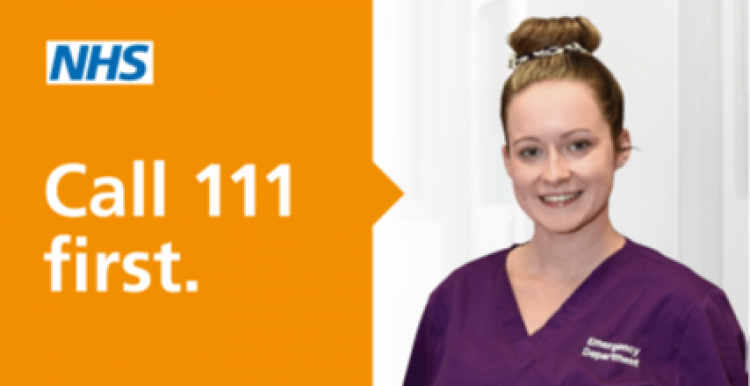What is NHS 111?

Key messages
- If you think you need A&E, just call NHS 111 first.
- NHS 111 will talk to you about the help you need and can book you in with the right local service – just call or visit 111.nhs.uk.
- By using 111 first you are making sure you are going to the most appropriate service for your needs – getting the right care in the right place in a more timely way.
- If you or someone you know is experiencing a medical emergency, you can – and should - still attend the Emergency Department or call 999.
- If you visit A&E without an appointment, you will be assessed in a timely way by a clinical member of the urgent care team and will receive emergency care and treatment if you need it. If your healthcare needs are not urgent, you may be invited to contact NHS 111 at the hospital to be directed to the most appropriate healthcare setting for your needs.
NHS First
A new service, NHS 111 First, is now available across Sussex. From 1st December, unless it is a medical 999 emergency, the NHS is urging everyone to call 111 rather than turning up at A&E. You can also use NHS 111 online by completing a few questions.
How will the service work?
If you have an urgent, but not life threatening health problem you can now contact NHS 111 First to find out if you need to go to A&E.
NHS 111 can book you an appointment at your local A&E or emergency department. This means you will have an allocated time to attend hospital and be treated, so you do not have to wait a long time to be seen and can also help services avoid becoming overcrowded.
You can contact NHS 111 either online or by phone 24 hours a day, 7 days a week.
What will this mean for you?
If your condition is not life-threatening, NHS 111 may direct you to a more appropriate service or one that can see you sooner. You may also be asked to wait at home until the emergency department is ready to see you, avoiding a long wait in A&E for you and helping to prevent overcrowding.
If you need an urgent face-to-face assessment or treatment, NHS 111 should be able to arrange this immediately for you.
Find out more https://www.sussexhealthandcare.uk/news/
What should you do if you have a life-threatening emergency?
If you or a loved one has a life-threatening emergency, you should call 999 or go straight to your nearest emergency department.
Examples of an emergency are:
- Loss of consciousness
- Acute confused state and fits that are not stopping
- Chest pain
- Stroke
- Breathing difficulties
- Severe bleeding that cannot be stopped
- Severe allergic reactions
- Severe burns or scalds